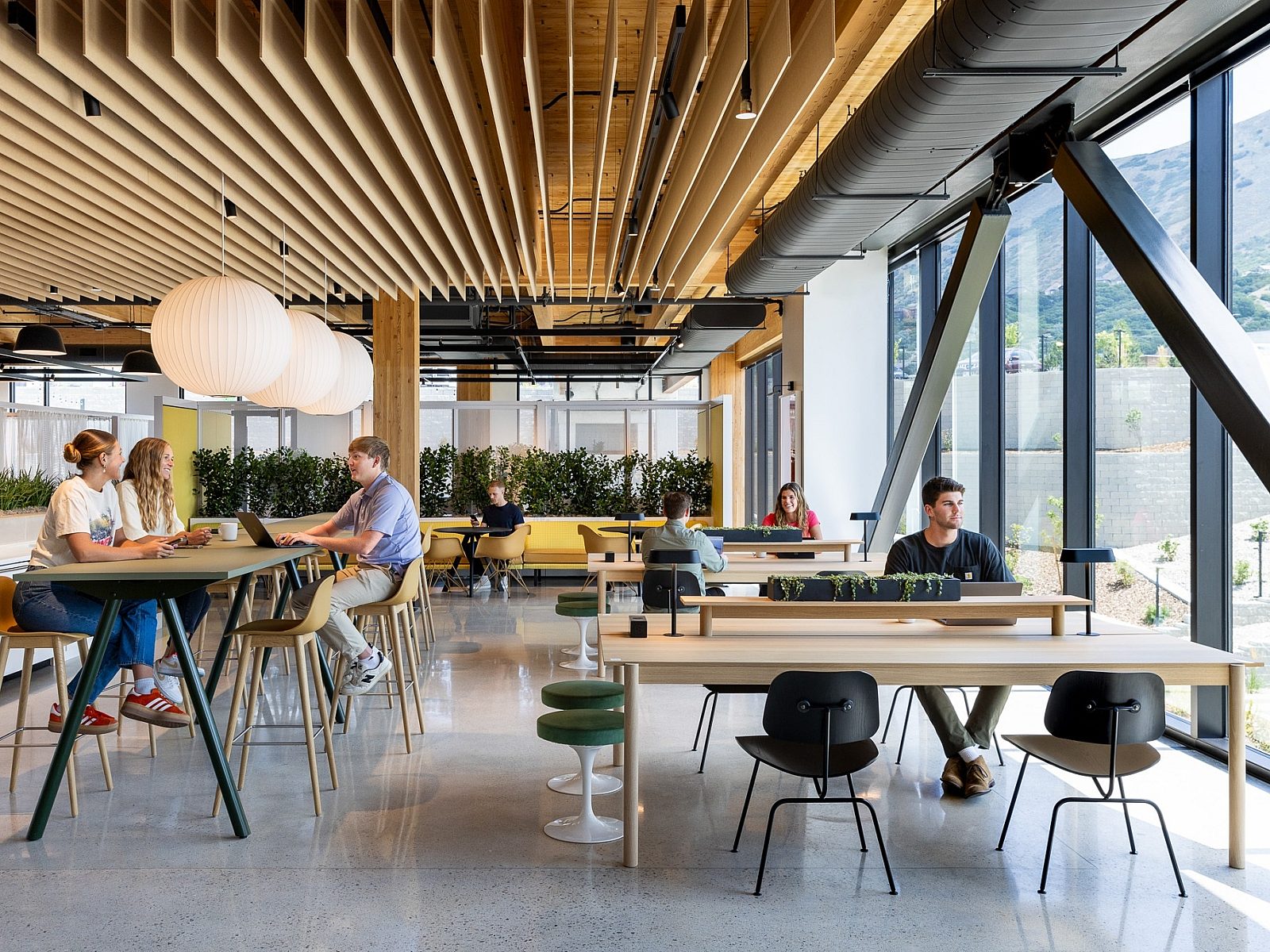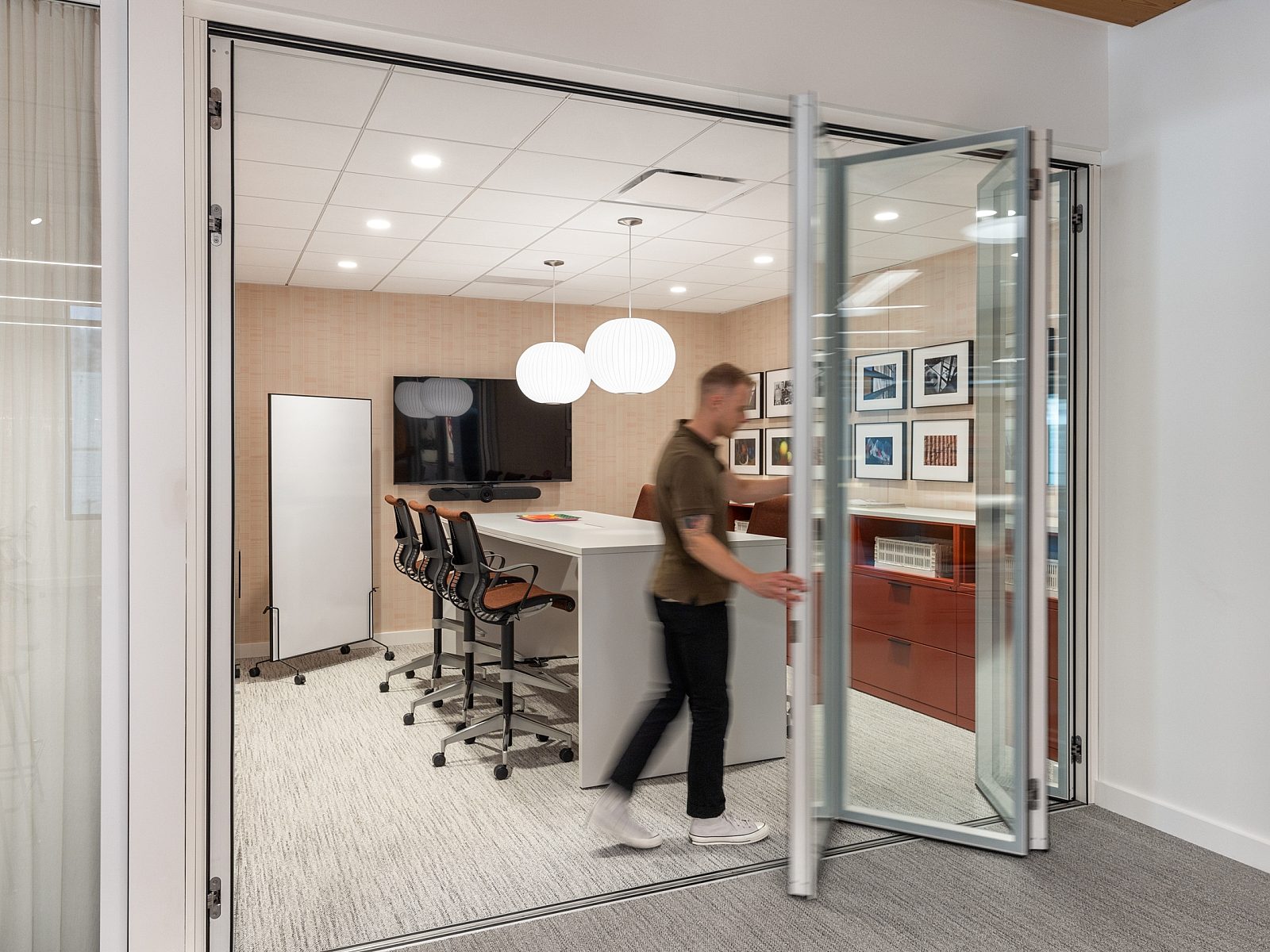Designing Equitable Spaces for Neurodiversity
We help create workplaces that adapt to a range of thinking styles—through integrated furniture, flexible systems, and intentional environments designed to help people thrive.

Inclusive by Design
Learn how to create workplaces that adapt to a diverse range of thinking styles through integrated furniture, flexible systems, and intentional environments—designed to help all people thrive.

Improve Wellness, Focus, and Belonging with Inclusive Spaces
Neurodiversity refers to the natural variation in how people think, learn, and process the world around them. And while everyone’s needs are different, workplaces can be designed to support that range—creating environments where people feel empowered and productive.
The result? Better outcomes for people and business alike.
Consider the research behind The Harkin Institute’s universal design approach—in partnership with MillerKnoll—where small shifts in space planning dramatically improved belonging, retention, and day-to-day effectiveness across teams.
1 in 5 people is estimated to be neurodivergent
– Neurodiversity in Business, 2024
Inclusive design improves retention, productivity, and wellbeing
– The Harkin Institute, MillerKnoll, 2023

The Value of Designing for Neurodiversity
Designing for cognitive variation benefits everyone. By offering sensory control, spatial choice, and inclusive policies, organizations can:
Foster Creativity and Innovation
Neurodiverse thinkers often excel at pattern recognition, out-of-the-box thinking, and problem-solving.
Improve Focus and Reduce Stress
Flexible work zones and sensory-sensitive spaces help everyone do their best work.
Boost Team Morale and Retention
When people feel seen and supported, they stay.
Future-Proof Environments
Neuroinclusive spaces are inherently adaptable to a wider range of employee needs—today and tomorrow.
Lead through Empathy
Companies that invest in inclusive design signal values of equity, innovation, and care.
Learn more from the team at The Harkin Institute and MillerKnoll in their 2023 Inclusive Design Study.

Evidence-Based, Human-First Design
The tools we use and recommendations we make are backed by leading workplace research and real-world case studies. From classroom installations to corporate headquarters, we’ve seen how small shifts in the environment can create outsized impact on wellbeing and performance.
“There is no one-size-fits-all. Offering people voice, choice, and variety in their space is the most inclusive thing we can do.”
– Designing for Neurodiversity Insight Series, MillerKnoll

Our Approach
Stakeholder Discovery Sessions
Garnering feedback from employees to inform planning.
Integrated, Flexible Solutions
Promoting user choice and sensory control.
Adaptable Work Zones
Supporting concentration, collaboration, and decompression—on demand.
Let’s Design for Everyone, Together
Whether you’re starting a new project or evolving an existing space, we’re here to help you design for inclusion.












